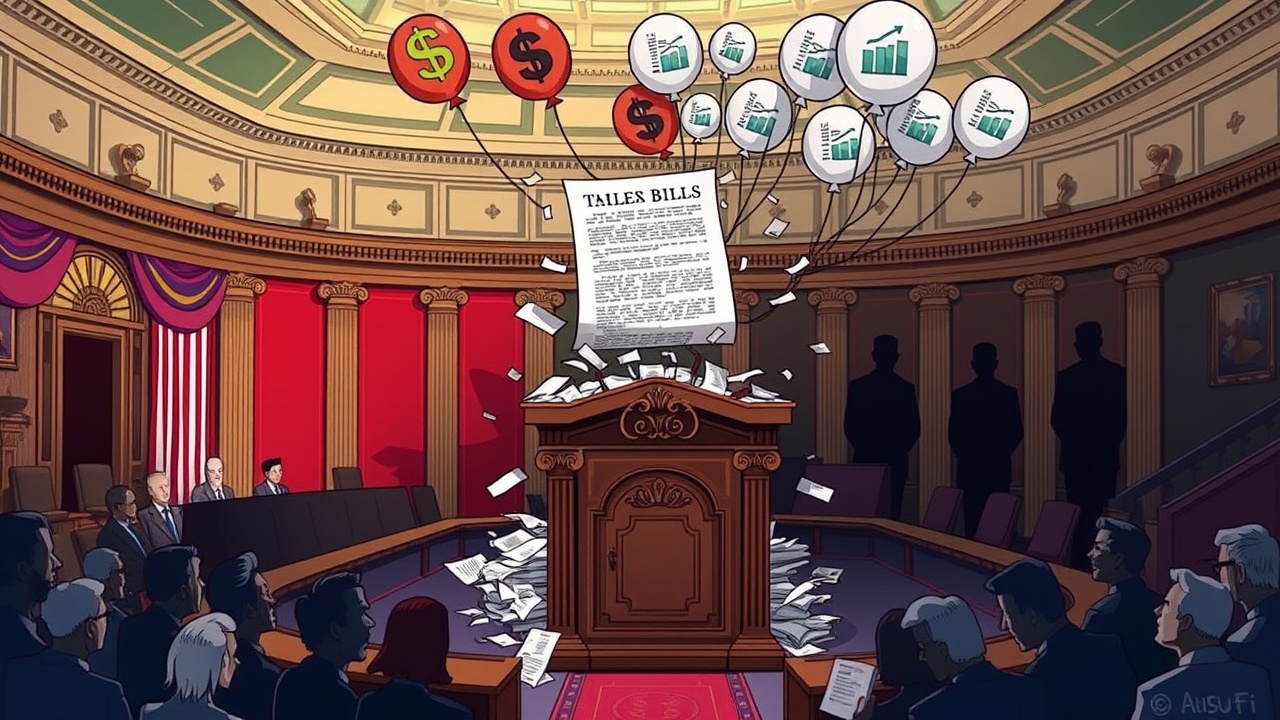Senate Approves Controversial Budget Reconciliation Measure
In a closely contested vote, the U.S. Senate has approved the contentious budget reconciliation measure dubbed the “One Big Beautiful Bill.” The legislation emerged from more than a day’s worth of vigorous debate, culminating in a tie at 50-50, with Vice President JD Vance stepping in to cast the pivotal vote that broke the deadlock.
While it represents a significant legislative achievement for the Republicans, the bill has come under fire from both sides of the aisle, particularly due to proposed cuts in healthcare, the need for oversight in artificial intelligence, and the anticipated effects of tax reductions on wealth disparity.
Opposition and Concerns
A coalition of Democrats along with three Republican senators opposed the bill, advocating for increased regulation on artificial intelligence and additional financial support for rural healthcare organizations. Among the dissenters was Senator Cynthia Lummis, who championed an amendment aimed at addressing what she claimed was discriminatory tax treatment towards cryptocurrency miners and stakers. Unfortunately for Lummis, her suggestions did not make it into the finalized draft of the legislation.
Despite acknowledging the bill’s flaws, Lummis pointed to its potential advantages for the energy landscape in Wyoming and for working families across the state. The legislation now heads back to the U.S. House of Representatives, where it is anticipated to encounter fierce pushback from Democratic lawmakers, notwithstanding the Republican majority in the chamber.
Industry Reactions
Criticism of the bill extends beyond politics; industry figures such as Tesla’s CEO Elon Musk have articulated their reservations. Musk, whose rapport with former President Donald Trump has waned, expressed concerns regarding the implications the bill could have on national debt levels.
He has also floated the idea of establishing a new political entity, termed the “American Party,” as an alternative to both major political parties, reflecting his discontent with the current political dynamics. He questioned the reasoning behind raising the debt ceiling and voiced a commitment to avoiding the economically perilous path of national bankruptcy.
Looking Ahead
As the legislative process continues, the future economic and political ramifications of the bill remain to be seen. Stakeholders, including legislators, business leaders, and the general public, are closely observing developments in what promises to be ongoing discussions about fiscal priorities and governance in the United States.
The bill’s passage stands as a critical point in the evolving narrative of U.S. economic policy and priorities, which are sure to influence the nation’s political climate in the near future.




